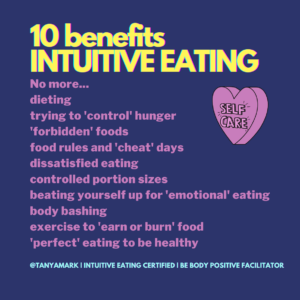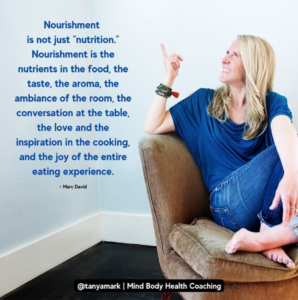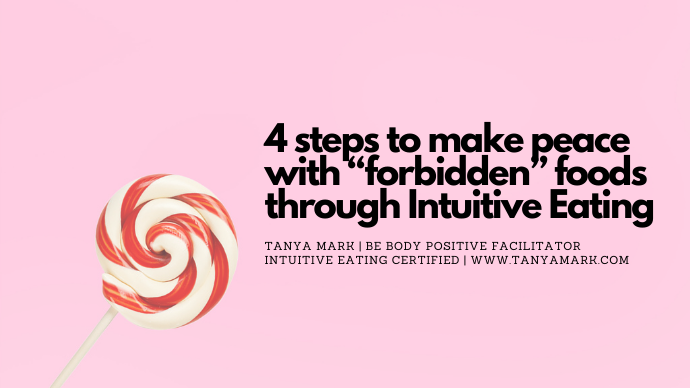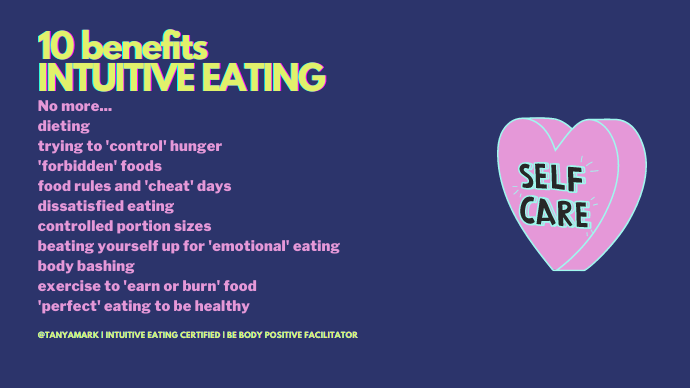You grab your phone, tap on a calorie counting app, type in your personal data and out spits your calorie cap for the day. It seems like it’s a benign approach to your nutrition, but is it?
As a former exercise professional and eat this, not that nutrition professional, I thought so. My days were spent measuring out spoonfuls of half and half, scrolling through brands and portion sizes on MyFitnessPal, and worrying about how many calories I was allowed to eat. At the end of the day, depending on my final calorie count, I felt good about myself, or not. I was swimming in diet culture that claims your wellness equals your weight and worth. And like a fish in water, I couldn’t see the harms.
Over a decade later, I clearly see that calorie counting apps are diet culture tools and believe they should come with warning labels.
In brief, calorie counting apps make nutrition seem like a simple numbers game; they’re inaccurate, disconnect us from our own body’s signals, detract from eating as a nourishing experience, create a hyper focus on food and weight (that can be potentially dangerous) and ultimately they don’t promote actual health and well-being.
Let’s dive deeper into those five diet app warnings.
Warning: Calorie counting disconnects you from your body’s internal cues such as hunger and fullness.
That’s problematic because you we born with “interoceptive awareness,” the ability to listen and respond to the direct messages of your body to meet your physical and psychological needs. As an infant, you cried when you felt hunger pangs and refused food when you felt full.
But over time, external food and body messages from family, friends, and cultural ideals may have caused you to over-ride those innate signals. For example, a well-meaning parent may have insisted that you clean your plate when you were full. Or perhaps you ignored hunger to stay within your recommended calorie limits on a diet. If you continued to tune those signals out, you may have lost your body’s trust to meet its needs, so those signals get muted.
Don’t worry, you can tune back into your body’s cues. One approach is called Intuitive Eating, a mind-body eating framework with ten principles that work by either cultivating or removing obstacles to your body awareness.

Intuitive Eating is “a journey of self-discovery and connection to the needs of your mind and body. There is nothing to count: this includes no counting of calories, carbs, points, or macros,” says co-founder Evelyn Tribole.
And please be very leery of an app’s recommended calorie intake. It’s likely inaccurate for you.
Warning: Every body burns calories differently.
Though you’ll still hear the message that your weight is simply a math equation, in a 2020 Harvard Health article, “Stop Counting Calories,” Dr. Famina Cody Stanford says that the calories-in, calories-out is not only out-dated, but wrong.
The three main factors that influence how your body burns calories include food type, your metabolism and the organisms living in your gut, called your microbiome. Thus, “you can eat the exact same number of calories as someone else, yet have very different outcomes,” says Stanford.
Not only is every body different, but we are nourished by far more than the calories in food.
Warning: Food is more than fuel.
Christy Harrison, author of The Wellness Trap agrees. “Human beings aren’t machines, and our needs for food can’t be quantified with mere numbers. Calorie counting… not only wildly underestimates the energy we need in general, but it also completely fails to understand what it means to be a human being. Calories say nothing about what makes us feel satisfied physically, mentally, and emotionally,” says Harrison.
Focusing on calories may separate us from enjoying eating as a nourishing lifelong human experience. We celebrate over food. We grieve over food. Yet we may avoid eating out with friends, attending birthday parties, or enjoying traditional family dinners to control our allotted calories for the day.
For many, eating has become another “to-do” to check off a list. Fast and distracted eating is common. And if we’re spending our days scrolling through an app to track calories, can we truly be present in our lives and with others?
Imagine bringing presence to your plate, slowing down (if even a little) to notice the taste, texture and aroma of your food and connecting with the company at your table, even if it’s just yourself.

Furthermore, calorie counting apps may come with unintended consequences.
Warning: Likely to foster a preoccupation with food and your body and may contribute to disordered eating.
A 2021 study by Eikey, 2021, connected diet app use with a fixation on numbers, rigid diet, obsession, app dependency, and extreme negative emotions that can increase the risk of or exacerbate eating disorder behaviors.
Mary Ryan, Licensed Clinical Social Worker, puts these apps in the category of scales.
She says that for some people they may seem benign or even helpful, for a time. But for many people, calorie counting apps “provide yet another way to harshly judge themselves and contribute to lower feelings of self-esteem, self-compassion, and self-efficacy when they don’t ‘achieve’ some particular calorie goal.
“In my view, we already have plenty of ways to beat ourselves up. We don’t need another one” says Ryan.
And finally, calorie counting isn’t a health promoting behavior.
Warning: A focus on calories and weight as the main measure of your health is problematic.
Wellness is far more complex than weight.
Healthy behaviors include getting back in touch with your body’s cues, practicing the basics of good nutrition, and ultimately taking a wide lens look at all the factors influencing your well-being. Consider the healing power of sleep, stress management, movement, social connection, mental health, and purpose in life.
While a calorie counting app may seem like a benign approach to nutrition, take caution and consider a “do no harm” approach that allows your mind and body to be its healthiest, not what diet culture says it “should” be. Tanya

























